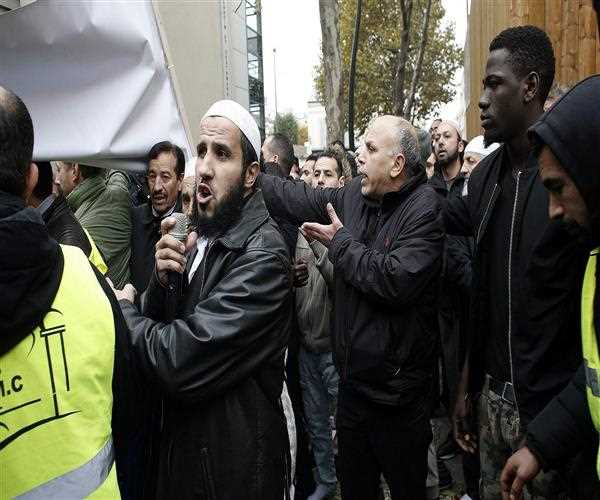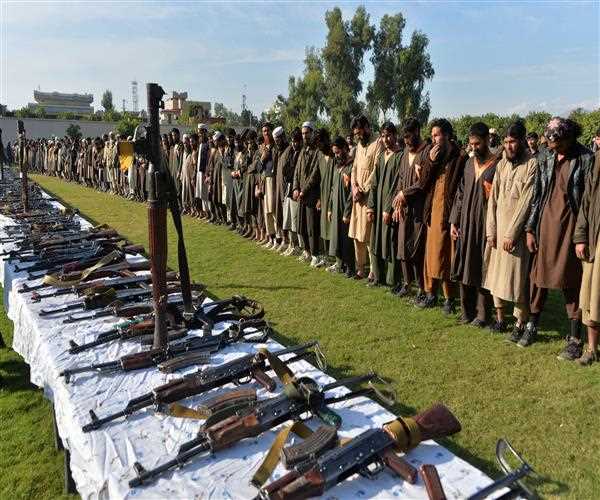
20-Jul-2023 , Updated on 7/20/2023 6:36:16 AM
Do you think that French will be Islamic Country?
Highlights
- France is a secular country, which means that the government is not officially connected to any religion. This principle was enshrined in the French Constitution in 1905.
- The vast majority of French citizens are not Muslim. According to the 2018 French census, only 8.8% of the population is Muslim.
- There is no evidence to suggest that France is becoming an Islamic country. In fact, the number of Muslims in France has remained relatively stable in recent years.
- France, a nation renowned for its rich cultural history, gastronomy, and iconic landmarks, has been at the center of various debates and controversies regarding its multiculturalism. In recent years, speculations and fears have arisen that France may transition into an Islamic country due to its growing Muslim population and cultural diversity.
The recent terrorist attacks in France have reignited the debate about the future of Islam in the country. Some people believe that France is on the verge of becoming an Islamic country, while others argue that this is simply not the case.
There are a number of factors that contribute to this debate. One of the most important is the increasing number of Muslims living in France. According to the French government, there are now over 5 million Muslims living in France, which represents about 8% of the population. This is a significant increase from the early 1970s, when there were only around 1 million Muslims living in France.
The growth of the Muslim population in France is largely due to immigration. In recent decades, France has been a major destination for immigrants from North Africa, Turkey, and other Muslim-majority countries. These immigrants have come to France in search of a better life, and they have made a significant contribution to the country's economy and culture.
However, the increasing number of Muslims in France has also led to some tensions. Some French people have expressed concerns about the impact of Islam on French society. They worry that Islam is incompatible with French values of secularism and republicanism. They also worry that the growth of the Muslim population will lead to an increase in terrorism and other forms of crime.
France's Secular Foundation
To understand the potential transformation of France into an Islamic country, it is essential to examine its historical roots. France has a long-standing commitment to secularism, a principle enshrined in its Constitution since 1905. Laïcité, the French term for secularism, separates the state from religious institutions, guaranteeing religious freedom while maintaining a neutral stance in public life. This constitutional principle has been a cornerstone of France's national identity for over a century, and any notion of France becoming an Islamic country would directly contradict this secular foundation.

Demographics and Diversity
France has experienced significant demographic shifts over the years, with immigration playing a substantial role in shaping its multicultural society. While the Muslim population has grown, it is essential to recognize that religious diversity coexists alongside other religious and non-religious communities. France is home to a myriad of faiths, including Christianity, Judaism, Buddhism, Hinduism, and other religious traditions, fostering a pluralistic and diverse society.
Integration and Assimilation
The process of integration and assimilation plays a vital role in determining how different communities coexist within a society. France has historically faced challenges in effectively integrating its immigrant populations, leading to debates on identity and the rise of cultural and religious tensions. Nevertheless, integration efforts and policies are continually evolving to promote social cohesion and encourage all citizens to participate actively in the nation's civic life.
The Role of Political Discourse
The rise of far-right political movements in France and other European countries has fueled debates on immigration, multiculturalism, and national identity. Some political actors exploit fears of cultural dilution to gain support, stoking unfounded speculations about an impending Islamic takeover. However, it is crucial to differentiate between political rhetoric and the reality of the situation.
Islam in France
Islam is the second-largest religion in France, and its followers have significantly contributed to the country's cultural tapestry. French Muslims have diverse backgrounds, including immigrants from North Africa, sub-Saharan Africa, and the Middle East, as well as a growing number of French-born Muslims. They enrich French society through their contributions in various fields, from arts and literature to business and science.
Secular Challenges and Religious Expression
While France is committed to secularism, challenges arise when addressing religious expressions in public spaces. The wearing of religious symbols, such as the Islamic headscarf (hijab), has sparked contentious debates over the balance between religious freedom and secular values. The French government's decisions to ban full-face veils (burqas and niqabs) and forbid religious symbols in certain public institutions have been met with both support and criticism, raising concerns about individual liberties and social harmony.
Addressing Extremism
As with any multicultural society, France has encountered challenges related to extremism. A small minority of radical individuals who associate with Islam have perpetrated violent acts, creating social divisions and heightening tensions. It is essential to recognize that extremism does not represent the broader Muslim community, and comprehensive efforts should be made to combat radicalization while preserving the rights of law-abiding citizens.
These concerns have been amplified by a number of high-profile terrorist attacks in France in recent years. In 2015, Islamic extremists killed 130 people in a series of coordinated attacks in Paris. In 2016, a man drove a truck into a crowd of people in Nice, killing 86 people. And in 2017, a man beheaded a teacher in Paris for showing cartoons of the Prophet Muhammad in class.
These attacks have shaken the French people and led to a backlash against Islam. Some French people have called for a ban on the construction of new mosques and for the expulsion of all Muslims from the country. Others have demanded that the French government do more to integrate Muslims into French society.
The debate about the future of Islam in France is likely to continue for many years to come. It is a complex issue with no easy answers. However, it is important to remember that France is a secular country that guarantees freedom of religion to all its citizens. This means that Muslims have the same rights and responsibilities as any other French citizen.
It is also important to remember that the vast majority of Muslims in France are peaceful and law-abiding citizens. They are simply trying to live their lives and raise their families. They do not want to see France become an Islamic country.
Contrary to the unfounded speculations about France becoming an Islamic country, the nation's secular foundation, rich cultural diversity, and commitment to pluralism firmly refute such claims. France's cultural identity is deeply rooted in its historical values of liberty, equality, and fraternity, which continue to shape its trajectory.

SEO and Content Writer
I am Drishan vig. I used to write blogs, articles, and stories in a way that entices the audience. I assure you that consistency, style, and tone must be met while writing the content. Working with the clients like bfc, varthana, ITC hotels, indusind, mumpa, mollydolly etc. has made me realized that writing content is not enough but doing seo is the first thing for it.
Join Our Newsletter
Subscribe to our newsletter to receive emails about new views posts, releases and updates.
Copyright 2010 - 2026 MindStick Software Pvt. Ltd. All Rights Reserved Privacy Policy | Terms & Conditions | Cookie Policy